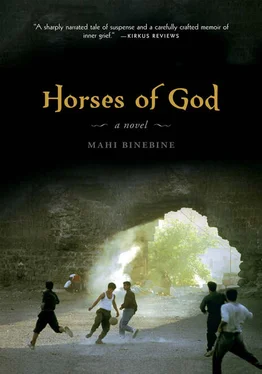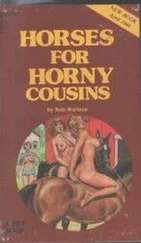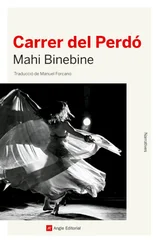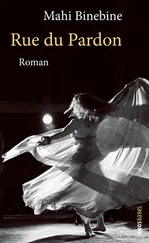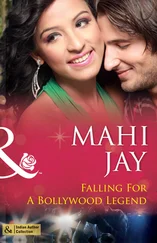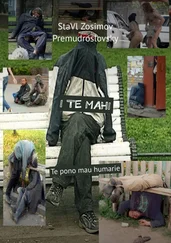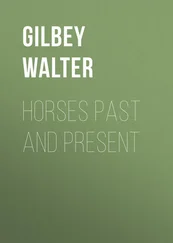“Come here, my son, bring me your eyes, I can’t see these damned stones anymore.”
I sat down beside her and began picking over the lentils too.
“You look so sad, what’s happened?”
“Nothing.”
“Come on now, tell your old mother what’s bothering you.”
“It doesn’t matter. I had a fight with Ali.”
“Over nothing, I imagine!”
I kept quiet. Yemma paused before going on:
“Still, he’s a good boy. He isn’t bad.”
Then, fixing her attention on the pulses, she said in a hushed voice, as if fearing she’d be overheard: “You should be kind to him. That boy hasn’t had much luck.”
I looked at her in astonishment.
“You know many round here who have?”
She smiled.
“But he’s definitely had less luck than others. I’m going to tell you his story, but first you have to promise me you won’t repeat it. . even though it’s no secret to anyone!”
“Well, it is to me.”
“Your friend’s name isn’t really Ali.”
“Well, I know that much, Yemma. We call him Blackie.”
“Listen to me and stop interrupting. Your friend’s birth name was Yussef. I know because I was there when he was baptized. I also know his poor mother, who I see at the hammam all the time. Ali is his brother’s name.”
“You’re wrong, Yemma. He doesn’t have a brother.”
“That’s true — not anymore. Ali was a lovely boy. I watched him grow, just as I have watched you.”
“I don’t understand.”
“It’s a tragic story, my son, one you wouldn’t wish on your worst enemy.”
She cleared her throat, let out a deep sigh, and went on: “There was a heat wave that summer, it was one of the hottest we’ve ever known. People couldn’t stay indoors because the zinc roofs, conspiring with the sun, turned homes into blazing furnaces. It was no better outside. The chergui was blowing clouds of dust and dirt from the east, making it impossible to breathe. The sky was heavy and low and constantly red; the atmosphere was stifling, a feeling of apocalypse hovered over Sidi Moumen. Yussef had dragged his younger brother, Ali, down to the river, below the quarries. It hadn’t yet dried up in those days. Although it was contaminated by the town sewers, that river attracted a good many kids who’d pour in from faraway slums to cool off. It was a real beach, my son. I’d sometimes take your older brothers there. They’d run riot, swimming from morning till night. I’d make tuna and tomato sandwiches and we’d get there early. The trees weren’t burnt by the sun and clouds of birds would come to tickle the green leaves. I loved seeing your father stretched out on the grass, his transistor radio glued to his ear, thrilling to the sports commentators’ wild outbursts. He’d make me laugh because if a Widad player happened to score, he’d suddenly jerk to his feet like a goat and dance a manic jig, then he’d throw himself on top of me and squeeze me tight. I protested, of course: ‘Magdul, what are you doing? People are watching!’ But he paid no attention. He was like a kid. .”
Yemma fell silent, she seemed to be in a dream. She’d forgotten her lentils and the story she was meant to be telling me. Her face glowed with light. I didn’t make a sound, so as not to interrupt her reverie. I found it hard to imagine my father belonging to the world of the living, and Yemma a woman in love. After a while, she recovered herself.
“Your brother Hamid was uncontrollable, incorrigible, king of the mischief makers. That was why I constantly kept my eye on the river. I’d catch him throwing himself off the bridge all the time. The water wasn’t deep and there was every chance he’d hit his head on a rock. It was no good me shouting myself hoarse, or shaking my arms at him, he just ignored me. The little fiend did exactly as he pleased. Your father objected, telling me to let the boys be, but I couldn’t stop worrying. Looking back on it, I don’t think Yussef should have taken his little brother to the river. There was danger everywhere. Ali was just five and Yussef only slightly older. Omar the coalman’s last-born was his pride and joy; he treated him like a prince, despite his miserly ways. He’d never come home at night without a little treat for him, chickpeas or sunflower seeds wrapped in newspaper. Inevitably, Yussef was jealous, but he loved his brother. He’d certainly have stopped him jumping off the bridge if he’d known he would disappear forever. It wasn’t fair of Omar the coalman to call him a murderer. So many little kids flung themselves haphazardly off the bridge. I saw them with my own eyes. They’d resurface a little farther down, unharmed. But not Ali, the little devil. Keen to show how brave he was, he raced to hurl himself off first, with a roar. And then he didn’t come back up. The river had just sucked up his shouts and his childish laughter. Forever. And yet the water wasn’t deep. Maybe a little rough that day, but Ali could swim. It wasn’t the first time he’d followed his brother to the river. How could Omar the coalman, having just lost one son, annihilate the other with such lethal words? ‘Murderer!’ he shouted, to anyone who’d listen. The many witnesses spoke of an accident, not a crime. A rock must have shattered the little one’s skull and the current took care of the rest. At first Yussef thought it was a joke; Ali used to delight in scaring him. Then, with fear in his gut, a frenzied fear he’d never known before, he threw himself in too. He looked for his brother everywhere. Wide-eyed, he dived down into the cloudy water and dived again. Nothing. He stayed submerged in the water for hours, frozen and trembling. The little body had disappeared, as if swallowed by the shifting clay; the hungry, malicious clay had devoured the laughing little boy. Some local shepherds set to work, raking the river from bank to bank. The boy was nowhere to be found, it was as if he’d vanished. It took the men of Sidi Moumen several days before they fished out the corpse a mile away from the scene. It was not a pretty sight, he was all decomposed; a fistful of mud , his mother moaned, rolling herself in the dust, scratching and tearing at her face. ‘Give me back my mud,’ she murmured, in a voice that gave you goose bumps. As for Yussef, he ran away, disappearing for a whole week because he knew how violent his father could be. He trailed around near Chichane and Toma, unable to face the fury that he knew was unavoidable. In fact, he’d almost been forgotten, the grief-stricken household was in complete disarray, with people filing in and out from morning till night. If the imam had not intervened, his disappearance might have lasted for eternity. It was the imam, a man respected by everyone, who went to fetch Yussef from the other side of the dump, promising him his father would be merciful, and who made the coalman swear, with his hand on the Koran, to spare his son the punishment he felt he deserved a thousand times over. .”
My mother broke off; sobs were blocking her throat. I too felt like crying but I stopped myself.
“Tell me, Yemma, why did Yussef change his name?”
My mother wiped her nose on the edge of her gandoura and went on: “One evening, after the burial, Omar the coalman summoned his wife and children into a room and said, in a voice that might have sounded sweet had it not dripped with hate: ‘I promised the imam I would not slash this criminal’s throat. Not that I don’t want to, but I will keep my promise. From this day on, know that it is not Ali who is dead, it’s Yussef, his murderer. He is dead and buried. I never want to hear his name again. He does not exist. He has never existed. If any one of you makes even the slightest reference to him, you will be turned out of my house. Do you understand me?’ They all looked down. Then, turning to Yussef, who was cowering, petrified, in a corner, he said firmly: ‘From now on, your name is Ali. This way, your crime will follow you to hell.’ More serious still, in his statement to the police, the coalman gave Yussef as the name of the drowned child.” My mother sighed. “And that is how the friend you’re so angry with right now officially lost his identity.”
Читать дальше
